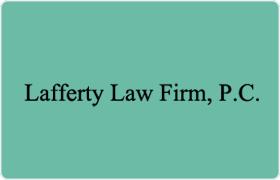Whites Creek Bankruptcy & Debt Lawyer, Tennessee
Sponsored Law Firm
-
 x
x

Click For More Info:
-
Lafferty Law Firm, P.C.
1321 Murfreesboro Pike Suite 521 Nashville, TN 37217» view mapBankruptcy & Debt Over 30 Years Of Experience
Susan S. Lafferty is a CPA and Attorney who enjoys helping people with financial problems. She is located in Nashville, TN where she has lived for over 30 years.
800-936-9071
Mary Beth Ausbrooks
✓ VERIFIED *Status is reviewed annually. For latest information visit hereBankruptcy & Debt, Consumer Bankruptcy
Board Certified Specialist in Consumer Bankruptcy
For more than three decades, the bankruptcy attorneys at Rothschild & Ausbrooks, PLLC, in Nashville, Tennessee, have been devoted to helping individua... (more)
Ben M. Rose
Business Organization, Collection, Consumer Protection, Contract
Status: In Good Standing *Status is reviewed annually. For latest information visit here
Phillip Patterson
Estate Planning, Family Law, Insurance, Credit & Debt
Status: In Good Standing *Status is reviewed annually. For latest information visit here Licensed: 20 Years
Stephen Gillespie Young
Litigation, Estate Planning, Insurance, Credit & Debt, Public Finance
Status: In Good Standing *Status is reviewed annually. For latest information visit here Licensed: 32 Years
Joseph Robert Prochaska
Litigation, Natural Resources, Administrative Law, Business, Reorganization
Status: In Good Standing *Status is reviewed annually. For latest information visit here
Ralph Demarco
Credit & Debt, Family Law, Federal Appellate Practice, Trusts
Status: In Good Standing *Status is reviewed annually. For latest information visit here Licensed: 52 Years
J. Patrick Warfield
Bankruptcy Litigation
Status: In Good Standing *Status is reviewed annually. For latest information visit here
David Anthony
Real Estate, Litigation, Credit & Debt, Bankruptcy & Debt
Status: In Good Standing *Status is reviewed annually. For latest information visit here
Sabin Thompson
Litigation, Criminal, Civil Rights, Credit & Debt
Status: In Good Standing *Status is reviewed annually. For latest information visit here Licensed: 47 Years
 Susan Lafferty Nashville, TN
Susan Lafferty Nashville, TN Practice AreasExpertise
Practice AreasExpertise
